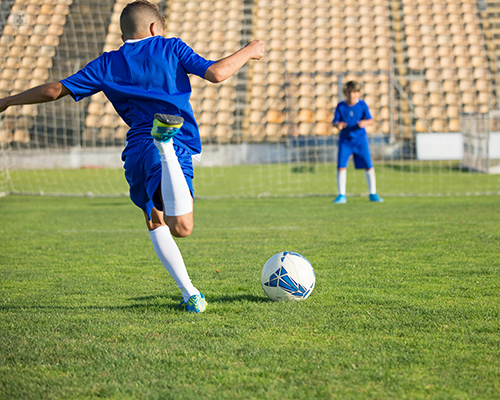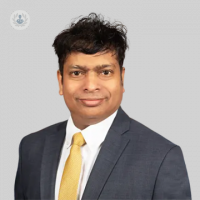ACL tears in children: A comprehensive guide for parents
Written in association with:Due to differences in bone development compared to adults, ACL tears in children require specialised care and consideration in both diagnosis and treatment to ensure optimal recovery and the health of the knee joint.
Mr Shobhit Verma, renowned consultant paediatric orthopaedic surgeon, provides an expert guide to paediatric ACL tears, offering insights into their causes, signs, and current treatment options.

What is the ACL?
The anterior cruciate ligament (ACL) is a band of connective tissue within the knee which is responsible for stabilising the joint, minimising stress, and preventing the knee from rotating or slipping out of place during activities like jumping, running, and landing. The ACL is susceptible to tears during sports and exercise, often due to non-contact twisting injuries, and this has become a common injury among children.
What are the signs of an ACL tear?
Symptoms of an ACL tear may include:
- hearing a popping noise at the moment of injury
- increased pain when attempting to bear weight on the affected leg
- swelling
- a feeling of instability or the knee giving way during weight-bearing activities
What treatment options are available for paediatric ACL tears?
Treatment for paediatric ACL tears typically involves surgery, as conservative methods like bracing and strengthening exercises have generally shown limited effectiveness.
Surgical intervention, particularly reconstruction, presents specific challenges. In children, who are considered skeletally immature due to their growing bones, the ends of each bone have an area called the epiphysis or growth plate which are the weakest part of the knee.
Traditional ACL tear repair involves drilling tunnels in the thigh and shin bones at the knee joint to replace the damaged ACL with graft tissue. However, since the growth plate lies in the path of these drill holes, traditional ACL reconstruction can lead to growth abnormalities in the child, such as uneven leg lengths. The younger the child, the higher the risk of significant deformity.
Are there alternatives?
Alternative surgical techniques have been developed to minimise the risk of growth arrest. One approach involves drilling holes that bypass the growth centres rather than passing through them. Another procedure avoids drilling holes altogether and wrapping the graft around the bones instead.
To reduce the likelihood of ACL tears, it's important to utilise appropriate protective gear and use correct techniques during sport activities or exercise.
To schedule an appointment with Mr Shobhit Verma, head on over to his Top Doctors profile today.


